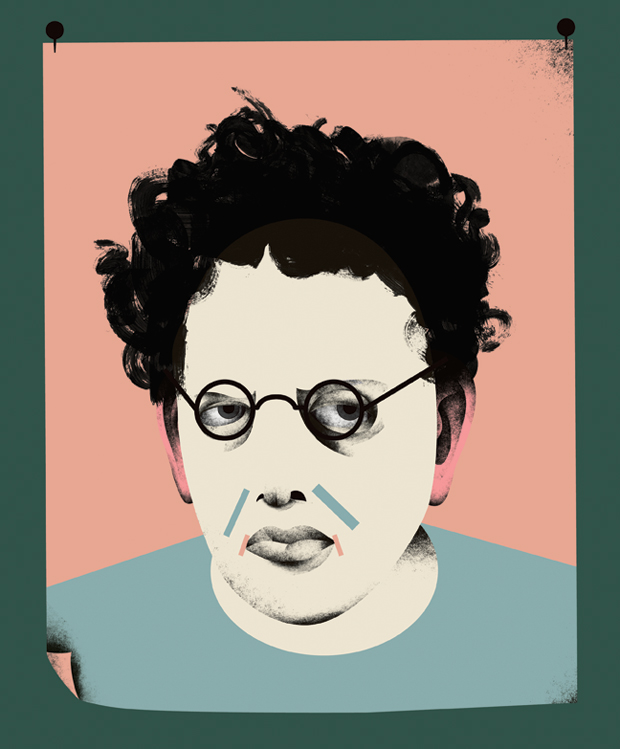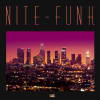 TYONDAI BRAXTON: Figures like Philip Glass helped to tie classical culture to the modern age. The connection he made was profound and helped usher in a new way of looking at music of hundreds of years past. During his ascent in popularity, certain values suddenly started being assimilated in to the academic end of the classical world. Constant pulse, repetition and the use of very un-obscured tonal harmony—simplicity—began to be an acceptable approach again. This is interesting to me because Philip Glass is a very well trained musician. He got his master’s degree in composition at Juilliard and went to Paris to study with Nadia Boulanger who is considered one of the most important music teachers of the 20th century. He moves back to NYC and what does he do with all the knowledge, all the painstaking studying he’s done with the best teachers in the world? He starts creating music based on repetitive, even digestible phrases. Why?
TYONDAI BRAXTON: Figures like Philip Glass helped to tie classical culture to the modern age. The connection he made was profound and helped usher in a new way of looking at music of hundreds of years past. During his ascent in popularity, certain values suddenly started being assimilated in to the academic end of the classical world. Constant pulse, repetition and the use of very un-obscured tonal harmony—simplicity—began to be an acceptable approach again. This is interesting to me because Philip Glass is a very well trained musician. He got his master’s degree in composition at Juilliard and went to Paris to study with Nadia Boulanger who is considered one of the most important music teachers of the 20th century. He moves back to NYC and what does he do with all the knowledge, all the painstaking studying he’s done with the best teachers in the world? He starts creating music based on repetitive, even digestible phrases. Why?
Critics have used the word “simple” in describing his music. Is it? I guess in some ways it’s simple. It is very clear music. Ideas that are melted down to their purest form and in some ways work together in a way that seems…obvious? Obvious is a weird word to use because it sounds derogatory. There is a natural order to his music. It’s sounds natural. It sounds easy. I wonder how much practice it took to make music that looks easy. A lot, it seems.
ZOLA JESUS: Philip Glass was one of the people that completely changed the way I look at music. The way he writes music—first of all, it’s extremely minimalist, but also it’s just so inherently beautiful. The way he uses repetition to his advantage, to communicate a whole different atmosphere and mood. I think some people feel like everything’s got to be constantly changing, but repetition is what I find so endearing. I must admit that I’ve probably been influenced by that a little bit. I feel like the most minimal and the most repetitive thing is the most effective. The more you hear it, the more you’re understanding it and the more you’re interpreting it. A small sound, ten minutes later could seem completely different because you’re really taking in the entire spectrum of that sonic component. I spent hours and hours playing “Metamorphosis 1” on the piano. It’s so calming and centering and beautiful.
NITE JEWEL: I grew up listening to a lot of [Philip Glass] because, actually, John Adams’ daughter went to my school as a kid, so we were exposed to a whole plethora of their music. In college, I studied a lot of minimalist music. Philip Glass is, at least in academia, a bit of a controversial figure because he brought minimalism into a pop context. I think a lot of people who were trying to do the same thing were a little bit bitter that he was the one who got famous. But there’s a reason why people get famous. It’s because they have a way of making a certain type of composition accessible to people, more so than John Adams ever did. I think [Glass] really appeals to kids. His songs appear on soundtracks in ways that no other minimalist composer could. He’s a pretty powerful figure.
JAMES FERRARO: I was into the Truman Show score. I actually got my parents to buy that for me. I didn’t know it was Philip Glass until a lot of years after the fact. I heard Music in Twelve Parts when I was around 19, and that’s still my favorite piece of his. It inspired me to go further into investigating that kind of modern classical music. That piece is one of my favorite pieces of modern music ever written. It’s really inspiring and just beautiful. It always hit me on a cerebral level, or even an emotional level. I really liked him in his minimalist period. It definitely affected the way I perceive music when I’m creating it. I like to zoom in on certain motifs and repeat them—[the way] things slowly evolve was really influential to my music.

TIM HECKER: I was in my early 20s, and I think my friend had a used vinyl copy of Glassworks—you know the typical gateway drug of Philip Glass. From there I branched off, and I think I really got into his solo piano work at first. The piece that really killed me after awhile was the first movement in Music in Twelve Parts. A lot of that stuff really was so refreshing to me because it was this lineage of classical music that had a force and physicality but also a really hypnotic, meditative, psychedelic aspect that was totally compelling. [Music in Twelve Parts] is one of the richer, more—not timeless or anything—but there’s this hypnotic magic to at least the first movement. I never get past the first 20 minutes, but that first section is the richest, most rewarding.
BLOOD ORANGE: My favorite Philip Glass work is Songs from Liquid Days. It reminds me a lot of when I first moved to New York four years ago. It feels like a mini-soundtrack. But I’m also a Suzanne Vega fan, and she wrote some of the lyrics for that record. Around that same time, or maybe a bit before, he also did the arrangements for a song of her’s called “50-50 Chance.” It kind of has a similar feel as Songs from Liquid Days. I love the world that he grew out of. As someone who isn’t from New York, it’s something I’m still, and probably will always be, in awe of. I’m pretty obsessed with notes in a rhythmic sense, and having each note be of an equal beat. I’m always a fan of layers of music that are also melodically rewarding. I went to the Ninth Symphony [performed at Carnegie Hall on Glass’ 75th birthday this year]. Hearing how refined and how mastered it was, it was so amazing. At 75, to be doing that. All of the people I look up to—Todd Rundgren or Neil Young—I see age as this tool to work out what you’re good at.
BECK: I think it’s one of those things where someone like Philip Glass has brought certain ideas that were so new, but also ideas that have completely been assimilated. You know, it’s a really interesting kind of duality. He just crisscrosses across all these different cultural tangents and byways. It is something that I would hope to emulate, this sort of opening up a dialogue of what’s possible, where your music can exist and participate, whether it’s in film or with writers or visual artists. I can’t tell you how many hip-hop records I hear in which a Philip Glass kind of thing is happening. [I took a] piece of his music and put a beat to it…it sounded like contemporary hip-hop. It sounded like something off of a Kanye West record, or any half dozen other hip-hop people. And then you listen to everything from Sufjan Stevens to other current music that has orchestral instruments and that certain sound, you know? And it’s not just Philip Glass, I know that Steve Reich is also a big influence, but to hear these composers in so much music now—I even wonder if they’re aware of it. I think that’s the thing to take away from seeing him and how he works is staying engaged. It can be easy as time goes and you develop a body of work—you could close yourself off or to become more critical of what’s coming after you. I think he’s very generous in that way, that he stays open to new music and different generations coming.
BRIAN DEGRAW OF GANG GANG DANCE: I think [Glass’ music is] often very pretty and also often very unnerving. Sometimes it causes my heart to race in very uncomfortable ways…but that is part of the deal—knowing that you are entering in to this piece of music that is a long ride that you really have to stick out in order to reap the rewards of the experience. It’s not dissimilar to LSD in that sense...there are a lot of anxiety inducing humps to get over in order to make it to the glorious come-down. It’s also very similar to meditation in that the first five or ten minutes of sitting in mediation can be really, really uncomfortable, with all sorts of thoughts coming into your head at once. It’s easy to give up within those first minutes but when you get past that point everything begins to slow down and breathe and that’s when the depth, clarity, and serenity kick in. Like when you see a rim on a jeep on the highway, spinning so fast and hectic, but then the rotations begin to sync up and cancel themselves out and the rim appears to be still.
I think his relationship with [the Chinese meditation practice] Qi Gong is very, very relevant and that has also been really inspirational in terms of helping me to approach life and music from a different direction. I have grown from mainly punk seeds and have made the majority of the music I’ve been involved in within the framework of punk, but at a certain age, I could feel myself progressing out of that state of mind a bit and really following the paths of meditation and spirituality and basically subscribing less and less to a “fuck the world” mentality and more and more to an “un-fuck the world” type train of thought. I tend to relate that transition to Glass a lot, in that, while his music has always had a fairly academic approach, it also had a necessary rawness in the early days. It had very deep meditational rough edges. Spiritual performance punk.



